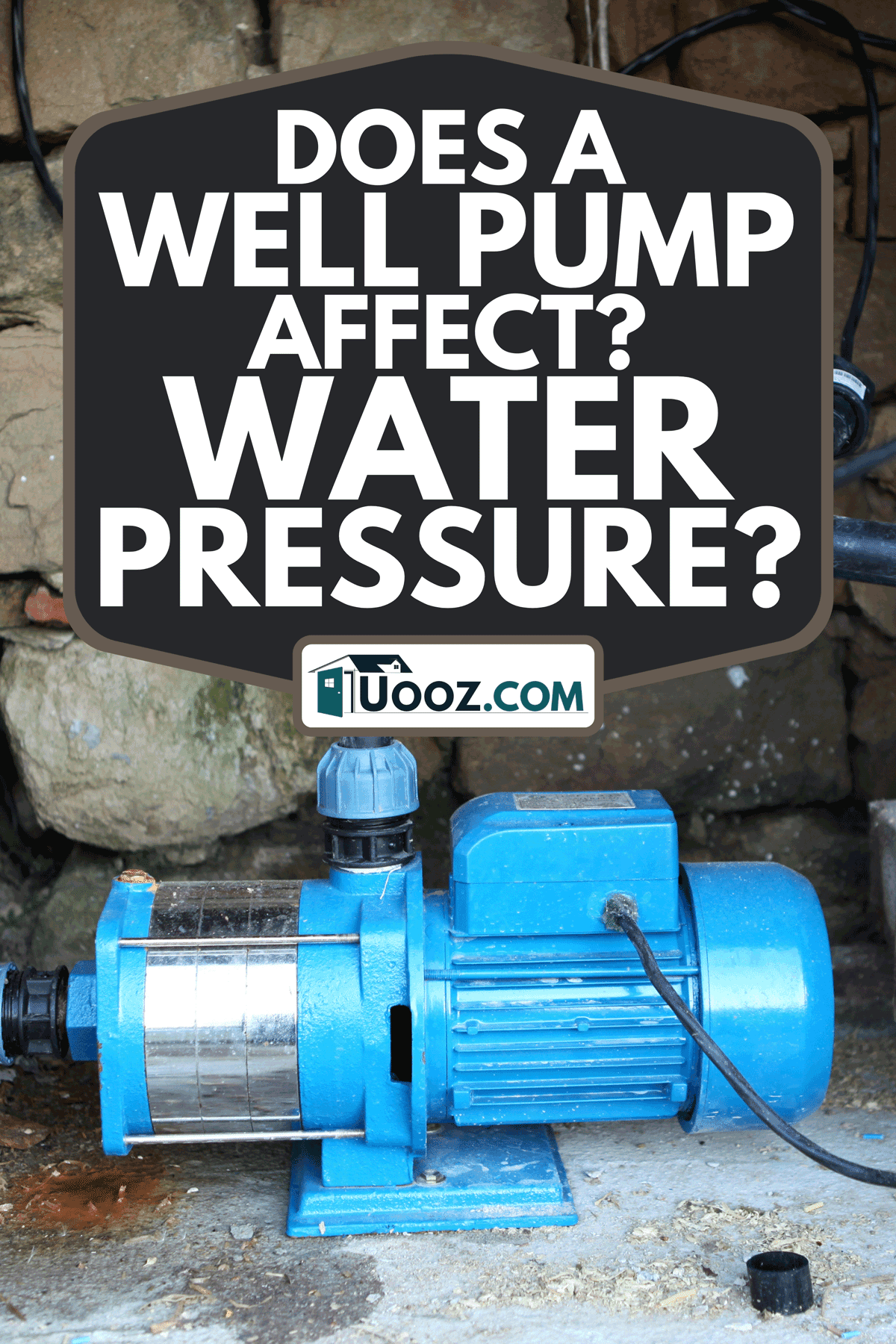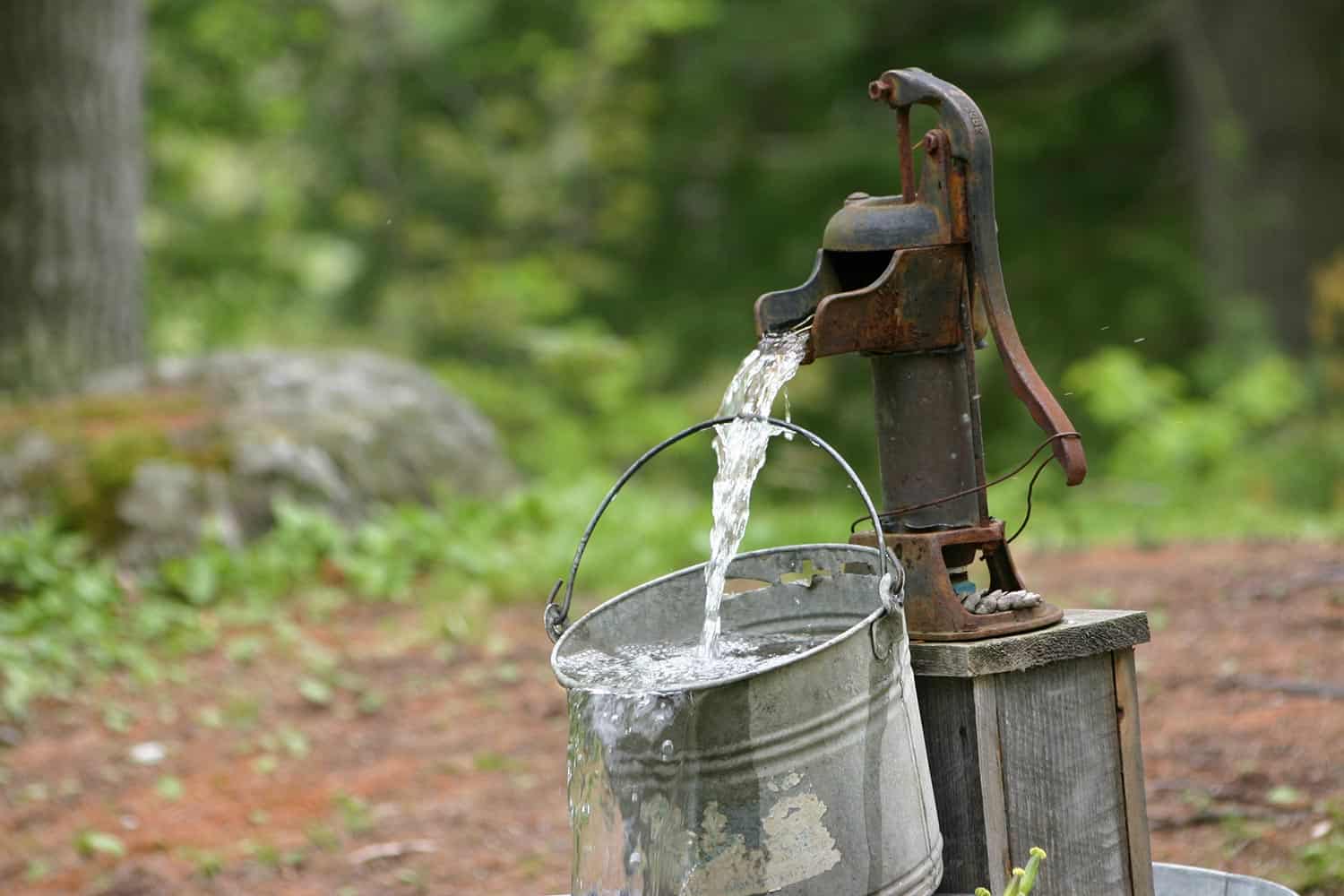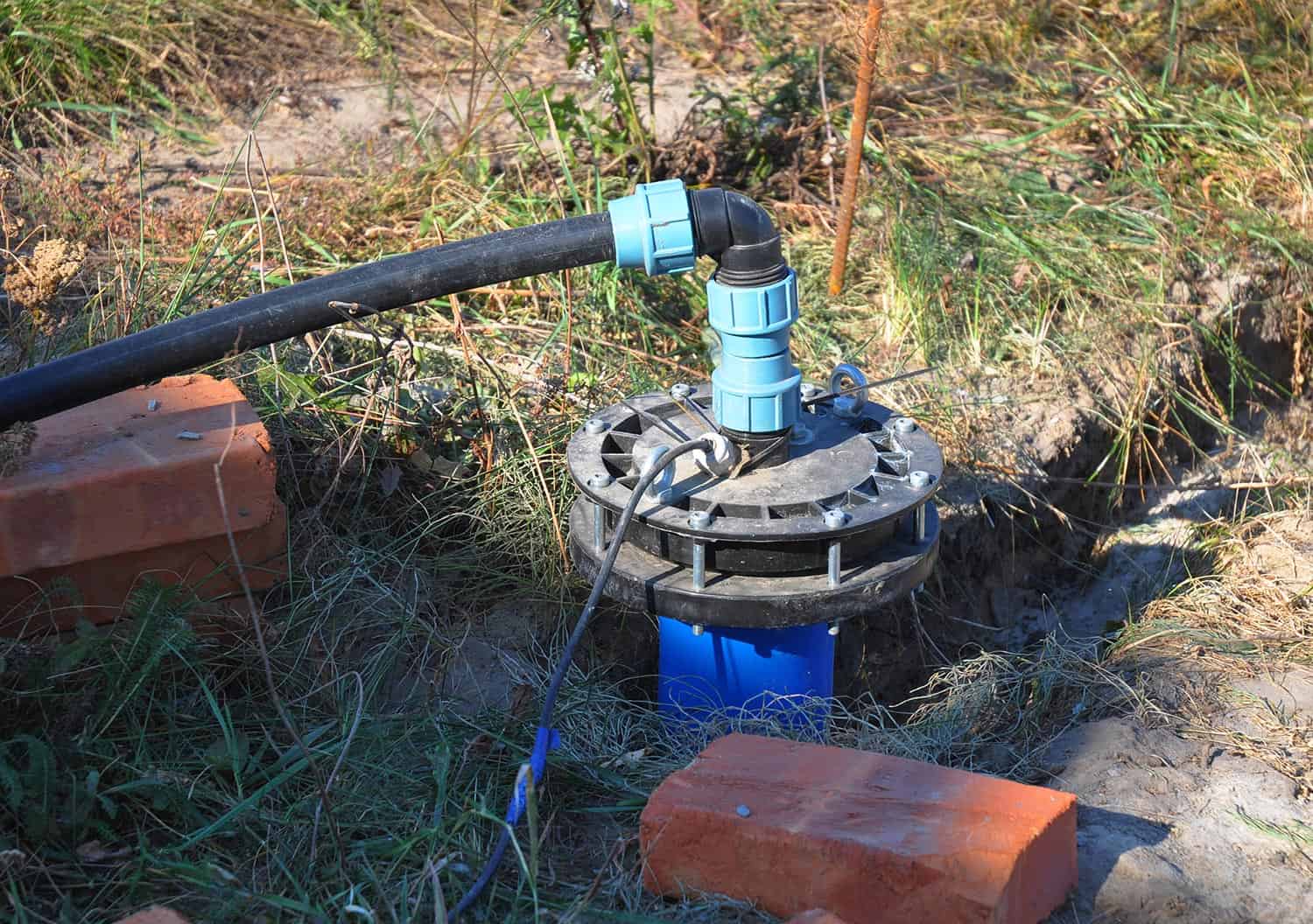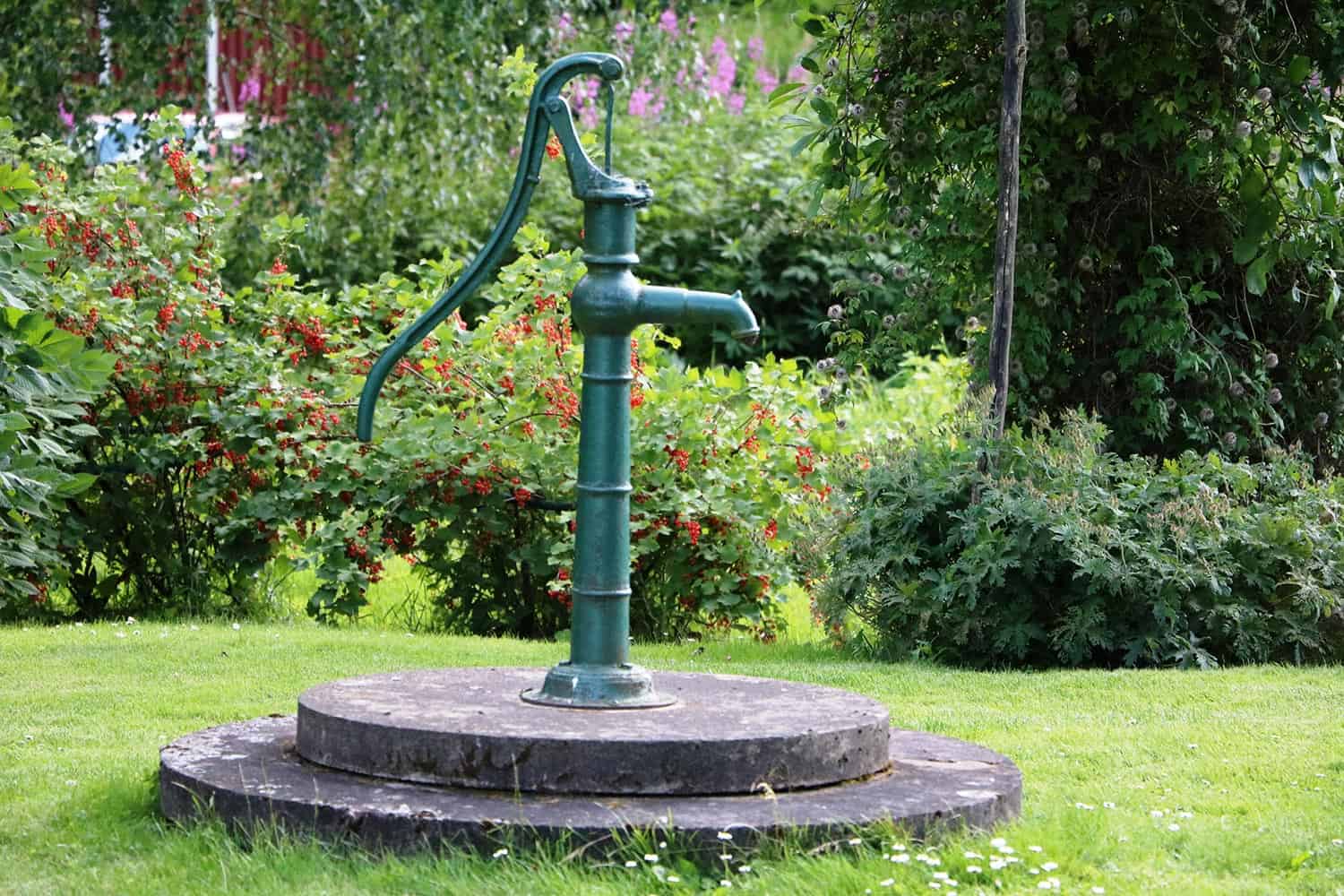Few modern inventions provide quite as valuable of service as that of the well pump. Gone are the days of hauling out water with a bucket and dragging it to its destination. Now you can use the power of force and a handy well pump to get your water where you need it to be. But there is one question on the minds of many users of this beneficial device: does it adversely affect the well's water pressure? Well, we have researched this question and answered it for you down below.
A well pump can adversely affect the water pressure in your well system for several reasons. These can range from a simple necessary adjustment of your well pressure system switch to the required declogging of pipes. If fixes like these aren't upping your water pressure, you may have to manually increase your well pump's water pressure.
There are a lot of potential issues that can cause a drop in your well's water pressure. Let's go into them further down below.

Water pump basics
If you live in a city or other highly-populated area, the municipal city water system already handles your water pressure. This water system holds itself at roughly 60 pounds per square inch (or psi). However, if you live in more rural areas, you most likely have a well water supply. These well water supplies use well water pumps and are controlled by well pump pressure switches.
These switches can be one of the causes of low water pressure, but they aren't the only ones.

What causes low water pressure in a house with a well?
Several issues can arise with your well water pressure system. Some of these include your water pump, and some do not. A few of the most prevalent problems with water pressure include the following:
Low flow from the well pipe
This can be caused by an aging water pump wearing out, clogged well screens, partially stuck check valves, broken well pipes, or a corroded piece of well piping. For well water problems, it's recommended to consult with a professional located in your area who will help you with the issue.
Pressure switch set too low, or faulty pressure switch
It might stand to reason that if your water pressure is low, you can fix it by just adjusting your pressure switch to be higher. While you can do this in theory, you have to be careful. Doing so will decrease the amount of drawdown in the pressure tank.
Your pump may not be able to build higher pressure than what it is currently set to, so adjusting it higher might not work. Pressure switches may need to be cleaned to make sure no insects or detritus are inside of them. This is best done by a professional as there is live wiring inside them.
Failed pressure tanks or low pressure in the captive air tanks
Your pressure tank has a captive bladder that holds a certain pre-charged amount of air pressure. To check it, turn off the good pump power, and drain out any water pressure in the tank by opening up a faucet or hose bib. This can also be related to a bad pressure switch as well.
Clogged piping
You might require a professional plumber for this one, but one way to tell if you have clogged pipes yourself is by taking out a portion yourself. If you notice it clogged with orange sludge or sediment, this is a surefire cause of weakening water pressure.
Clogged or stuck gate valves
Both gate and ball valves need to be turned on and off periodically. Sometimes gate valves can get stuck and cannot open or close, especially if they haven't been used for a period of time. When they get to this point, it's best to replace them altogether.
There are other reasons your water pressure might be low or otherwise poorly functioning. If need be, contact a professional to look at your well system to find the problem.
Read now on UOOZ: 'Best Pipe To Use For Underground Water Line? Here's What Experts Say'
How can you tell if your well pump is going bad?

One of the more unfortunate facts about a faulty well pump is that there aren't many warning signs. Requiring a replacement after the fact is an all too frequent occurrence. However, there are a few signs that something might be amiss, and they certainly should not go ignored.
Fluctuation in water pressure
Fluctuation in water pressure is not always a sign of your well pump going bad, but it's always worth getting checked out by a professional. Well pumps run on electric motors, so the motor fails, you will notice a difference in your water pressure.
Noisy pressure tanks and constant clicking sounds
Noisy pressure tanks and constant clicking sounds can be another sign of problems. If your pressure tank begins leaking or losing air, it will start to make these continuous clicking noises. A failed pressure tank bladder can be very hard on the well pump's electric motor over time, drastically reducing its life expectancy. Call a qualified plumber as soon as you notice the problem to get it checked out.
Sudden bursts of scalding water
Scalding shower water coming as a result of someone flushing the toilet is likely a sign of issues with the pressure tank as well.
This is because some homes are equipped with two- or three-handle tub and shower valves that don't have pressure-balancing spools. The drop in pressure from your malfunctioning tank will allow more hot water than cold water in, creating surges of scalding water.
All these problems will cause considerable jumps in your electric bill, which might be the ultimate sign it's time to call in the professionals.
How do I fix low water pressure from my well?
While many well owners feel that low water pressure is something they have to live with, it's not the case. There are several things you can do as an owner to combat the issue of low water pressure.
Servicing your water pressure tank
Servicing your water pressure tank is always a good place to start. A home's average water pressure should be between 40 and 60 PSI.
For those who need to increase this number, start by turning off the circuit to your dedicated well pump. Test the air fill valve with an air pressure gauge to see where your numbers lie. Increase your PSI (if the number is below 40 PSI) and test out the water pressure. Repeat these steps if necessary.
Getting your pipes checked
Another way to help with your water pressure is to get your pipes looked into. Clogged pipes are a major offender when it comes to low water pressure. Homes with hard water in their systems frequently suffer a buildup of sediment and minerals in their pipes. Combat this by having your pipes inspected semi-regularly and a water softener installed.
Installing a new constant pressure system
Installing a new constant pressure system helps your pressure tank provide your home with increased water pressure demands. This piece is installed on the water line that enters your home and prevents water pressure from dropping when multiple fixtures are used. Contact your local plumber to help with installation.
What happens if your well runs out of water?

First, you should always be watching for the signs of your well running low on water. This includes muddy water, sputtering taps, and your tap turning on and staying on more often than usual. These are all signs your well is running low, and you need to take care of it.
If your private well is low or has run entirely out of water, you have a few options. Lowering the water pump, deepening the well, and drilling an entirely new well are potential options. While most pumps are placed well beneath the surface, there is a chance yours can be lowered even further.
Depending on your location, further drilling can also be a potential option. You'll need to call local professionals to see which options are best for you based on location and local laws.
Read now on UOOZ: 'No Water Coming Out Of Faucet - What Could Be Wrong?'
How fast does well water replenish?
The average for well water recovery is around 5 gallons of water per minute, but every well is unique. The rate at which a well will recover is dependant on factors such as the age of the water well, the location and geology, and the size of the well all come into play. In reality, the recovery rate can range from a fraction of a gallon per minute to up to ten gallons per minute.
In Closing
Well pumps are part of a very complex system that keeps fresh water readily available for people in rural areas. Where so many of us take water for granted, getting it to some can take a lot of effort. A lot can go wrong quite easily. We hope this guide offered some help on some of the ways to troubleshoot these problems. May your well stay flowing for as long as you need.
